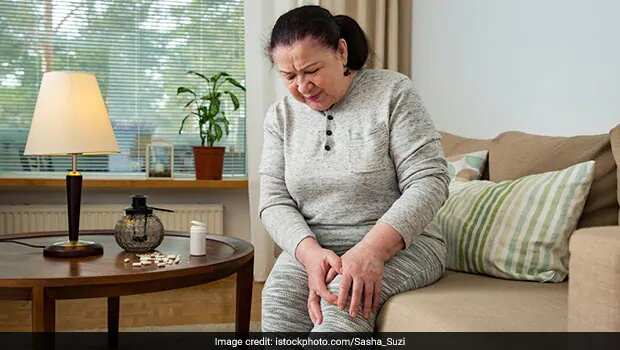Osteoporosis can be prevented by maintaining a healthy diet and an active lifestyle. Here are some common risk factors of the condition you need to know.

Women are at a higher risk of osteoporosis than men
The human body's bone mass is at its peak when a person is in the 20s and 30s. However, this begins to decline when your bone matrix begins to dissolve with age. The body rebuilds bones by forming new cells through what is called remodelling. However, in some people, new bone cells form at a rate much lower than that of resorption or dissolution of bone matrix. This condition is called osteoporosis and is slowly becoming a topic of great concern in India, with the increasing elderly population.
With low density, the bones become more prone to fractures including those of the hip and peripheral joints such as wrists and spine. These are called osteoporotic fractures and can lead to serious disability, deformity, pain and even mortality. Osteoporosis progresses slowly and silently and begins to show when a person at risk experiences a minor accident or a fall resulting in a fracture. There is a need to understand the risk factors for this condition and ensure that prevention is undertaken from an early stage.
Common risk factors of osteoporosis
Age
The risk of osteoporosis increases with age. From the age of 30 to 40 years, the bone mineral density starts decreasing in both men and women. By the age of 60, this loss becomes significant leading to the bones becoming weak and fragile.
Gender
Women are more susceptible to osteoporosis than men since they have less bone tissue and also lose bone density more rapidly than me. The primary reason for this is menopause as it leads to several hormonal changes in women's body.
Family history
A person who has a family history of this condition or has suffered a fracture previously may be more prone to this condition. A fractured bone tends to become weak and stiff over time. This is further a risk for osteoporotic fracture.
BMI
People with a low BMI are at risk for acquiring osteoporosis. This is because while obesity can put pressure on the joints, etc., having a thin body frame increases the risk due to less bone mass.
Diet and lifestyle
People whose diet lacks in essential nutrients such as calcium and Vitamin D are also prone to getting osteoporosis. Calcium helps in building your bones. Vitamin D helps in the absorption of calcium and maintains bone strength. Adults in the age group of 20 to 50 should get at least 1000 mg and 600 units of calcium and Vitamin D, respectively. Some sources of these nutrients include green leafy vegetables and fish, fortified milk and sunlight. Smoking and drinking are also habits that can exacerbate the risk of osteoporosis.
Medication
Certain medications that cause fluctuation in the hormone levels, particularly in women, can contribute to this condition. It is important to talk to the doctor before taking any medications and understand their side effects before consumption.
In conclusion
Osteoporosis can be prevented by maintaining a healthy diet and an active lifestyle. Physical activity helps in maintaining good muscle tone and bone health and a balanced diet rich in vitamin D, calcium, phosphorus, magnesium, potassium and zinc prevents deficiencies. Women in the menopause stage and men above 50 must get screened for osteoporosis regularly. They should not ignore symptoms such as prolonged back pain or incidences of falls and fractures. There is also a need to ensure that people in whom the condition are cared for.
(Dr Vishal Sehgal, President, Medical Services, Portea Medical)
Disclaimer: The opinions expressed within this article are the personal opinions of the author. NDTV is not responsible for the accuracy, completeness, suitability, or validity of any information on this article. All information is provided on an as-is basis. The information, facts or opinions appearing in the article do not reflect the views of NDTV and NDTV does not assume any responsibility or liability for the same.
DoctorNDTV is the one stop site for all your health needs providing the most credible health information, health news and tips with expert advice on healthy living, diet plans, informative videos etc. You can get the most relevant and accurate info you need about health problems like diabetes, cancer, pregnancy, HIV and AIDS, weight loss and many other lifestyle diseases. We have a panel of over 350 experts who help us develop content by giving their valuable inputs and bringing to us the latest in the world of healthcare.














